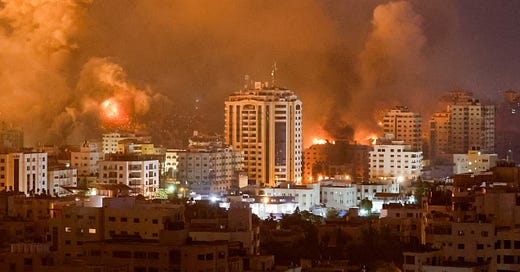I have observed that there has emerged in recent days an international chorus from governments and the organizations of civil society in all regions of the planet. It is a chorus of denunciation of Israel for its continuing violence against the people of Gaza.
To cite one example, Gerardo Peñalver Portal, Permanent Representative of Cuba to the United Nations, declared on October 20 at the UN that “Israel's indiscriminate bombardment of the Palestinian population and the destruction of homes, hospitals and civilian infrastructure, as well as the deprivation of water services, electricity and fuel to the Palestinian population, must be stopped immediately.” He called for strict respect for the Charter of the United Nations, and he asserted that nothing can justify such action, which constitutes a serious violation of international humanitarian law.
I must join in this world clamor demanding an immediate cessation of violence against the pe…



